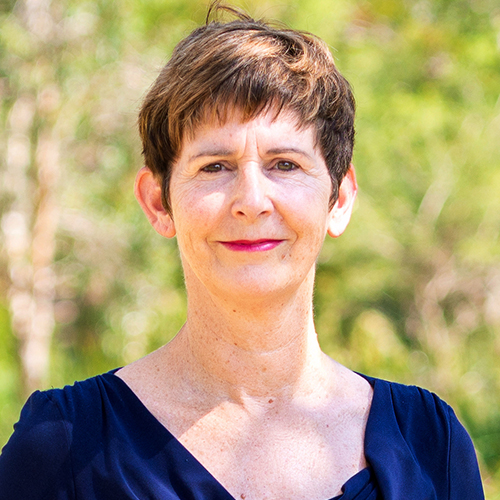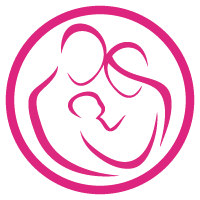 IBCLC Detailed Content Outline: Psychology, Sociology, and Anthropology Focused CERPs - Section V
IBCLC Detailed Content Outline: Psychology, Sociology, and Anthropology Focused CERPs - Section V
Access CERPs on Psychology, Sociology, and Anthropology for the IBCLC Detailed Content Outline recertification requirements. Enjoy convenient on-demand viewing of the latest Psychology, Sociology, and Anthropology focused IBCLC CERPs at your own pace.


Dr. Britta Bushnell (she/her) is author of Transformed by Birth, host of the podcast Transformed, veteran childbirth educator, celebrated speaker, mythologist, wife and mother, and specialist in childbirth, relationship, and parenting. For over 20 years, Dr. Bushnell has worked with individuals and couples as they prepare for the life-changing experience of giving birth. Her work with parents has been enriched by her doctoral work in mythology and psychology, her years spent as a co-owner of Birthing From Within, as well as her dedicated study of solution-focused brief therapy, storytelling, and skills for supporting intimate relationships while parenting.
Britta is an engaging teacher, speaker, and presenter. Whether addressing a room of expectant parents, new mothers, or seasoned birth professionals, Britta has a way of captivating and inspiring them all. She has presented at conferences such as DONA International, MANA, ICEA, and Lamaze. Additionally, Britta has been featured on several popular podcasts including Informed Pregnancy, Birthful, and Atomic Moms. In 2016, in recognition of her transformative childbirth classes, Britta was awarded "Educator of the Year" by the Southern California Doula Association (DASC).
Topic: Awakening the Parent: Are You Supporting or Sabotaging Your Client’s Transformation? - [View Abstract]
Beneath the surface of every labor and delivery room interaction between physicians, nurses, and patients (as well as their partners) vibrate the pressures of power. Who is in charge? Regardless of the stated beliefs or legal truth about who IS in charge, the dance between the characters in the labor room often plays out archetypally. Archetypes are a recurrent symbol or motif found in literature, art, or mythology that live within the unconscious influencing how individuals behave, think, and feel. While many archetypal energies are possible during labor, the dominant archetypal energies active in a labor room tend to vacillate between that of Caretaker, Orphan, Ruler, Hero, Innocent, and Warrior. Nurses, often drawn to the career to help others, connect with the Caretaker archetype. However, due in part to hierarchical structures within the hospital setting, nurses can be left feeling unseen, undervalued, or powerless activating the Orphan archetype. Comparable patterns can be observed in obstetricians with the Ruler and Hero and in parents with the Innocent and Warrior archetypes. Without consciousness of the power dynamics between these archetypal energies, satisfaction in both the process and outcome is often fleeting for parents and can lead to burnout in professionals. Greater understanding of the needs of each activated archetype provides individuals needed guidance in how to better navigate labor room power dynamics and why doing so matters profoundly.


Demetria Clark is the Director of Heart of Herbs Herbal School founded in 1998, www.heartofherbs.com. She has been an internationally known herbalist and aromatherapist for over 20 years. Training thousands of practitioners and working with organizations all over the world to promote wellness and self-sustaining careers.
For health care officials aromatherapy is becoming a tool many clients and patients are relying on, learn what can be used to support clients and patients safely. Often with any sudden popularity with a modality unsafe practices can be found and safe information needs to be available to health practitioners. Learn what essential oils and aromatherapy is and how you can explore the health benefits of this modality with your clients.
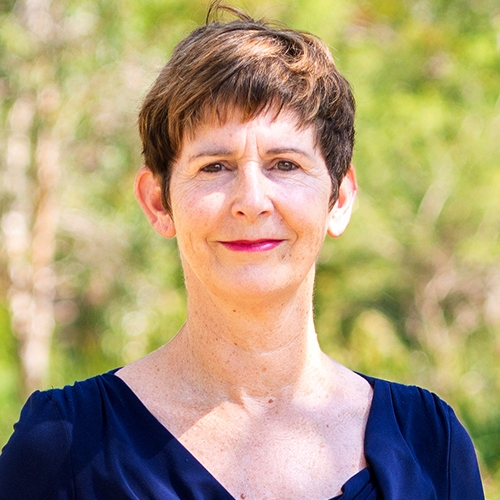

Professor Emeritus Jenny Gamble’s has been a midwife since 1983. She and worked clinically for 17 years in a variety of positions and models of care, several Australian states, and overseas. She has a strong international profile in maternal and newborn research with specific expertise in perinatal mental health. She is a well known for her professional leadership with health services, the midwifery profession and collaboration with consumers.
There is growing evidence that fear of childbirth (FOC) is an issue of importance for women’s emotional and psychological well-being. For some women symptoms are severe and disabling. A previous traumatic birth experience, sexual abuse, and traumatic childbirth stories of others and media may contribute to fear of giving birth.
Fear of childbirth has negative implications for women’s experiences of pregnancy and birth including longer labour, increased likelihood of augmentation of labour, emergency caesarean section, and elective caesarean section.
Access to services for women with fear of childbirth appears to be inequitable and various approaches and interventions are used.
Assessment tools are available and readily implemented in practice to identify women fearful of childbirth and the severity of fear feelings, however a trauma informed approach to talking with fearful women is essential to discover the factors related to the fear and the commencement of a therapeutic relationship.
There is some evidence about interventions to help women fearful of childbirth. The webinar will assist midwives and nurses working in maternity know how to respond to fearful women and provide practical information about what to do, what to say and what not to say to support women experiencing fear of childbirth.

View Details / Enroll

Attachment and Neurodevelopmental Outcomes in Premature Infants: The Role of Interpersonal Neurobiology in the NICU

Kara Wahlin is a licensed marriage and family therapist and art therapist who resides in the Coachella Valley of southern California. After going through the preterm birth of her twin sons William and Elliott, and the subsequent loss of William, Kara made the promise to dedicate her clinical work to helping other families coping with the trauma and loss often wrought by the NICU experience. She developed the website NICU Healing in order to provide free information, couples and individual therapy, and online support to NICU families. Kara uses strengths-based, neuroloscientifically-informed and creative practices to empower her clients to picking up the pieces of their lives and moving forward with their new life stories. She speaks frequently at conferences discussing best clinical practices, and writes for her own as well as other blogs about new ways of coping with mental health issues that come up after traumatic experiences. In her free time, Kara and her son Elliott are art machines and expert hikers, and also spend their time at home with their menagerie of small animals.
Evidence has shown that attachment between a primary caregiver and their preterm infant can change the neurodevelopmental outcomes for the infant later in life. Attachment can be seen as a living organism between parent/caregiver and child, and with encouraged development and growth, the attachment relationship can have profound effects, even in the context of the most difficult of circumstances and medical diagnoses. The more NICU caregivers know how to encourage attachment, the likelier a family system will need less medical/psychological intervention after discharge from the hospital.
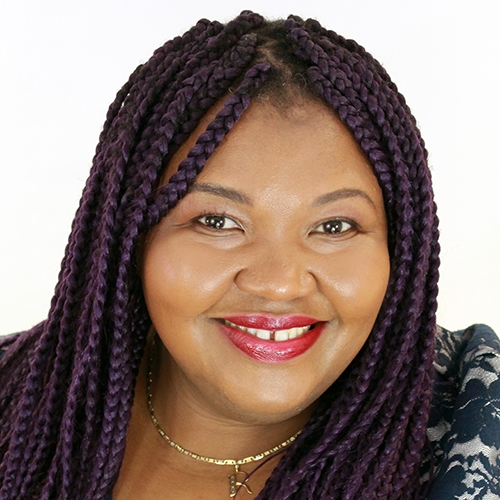
Attachment Begins in Utero: The Vital Role of Facilitating Parental-Foetal Bonding

Dr. Ruth Oshikanlu MBE is a multi-award winning nurse, midwife and health visitor. A nurse entrepreneur, consultant, leader and parenting expert, she is passionate about supporting vulnerable children and their families to reduce health inequalities and improve their life outcomes. Her previous roles include: HIV specialist midwife, Family Nurse at one of the first pilot sites of The Family Nurse Partnership intensive home visiting parenting programme for vulnerable families, and Nurse Leader of The Lewisham Young People’s Health and Wellbeing Service.
Ruth is a Pregnancy Mindset Expert and supports pregnant women who have had assisted conception or previous pregnancy loss. She is the author of Tune In To Your Baby: Because Babies Don’t Come with An Instruction Manual.
Ruth is a Queen’s Nurse, Fellow of The Institute of Health Visiting, Royal College of Nursing and The Royal Society of Arts. She is the recipient of several national healthcare and business awards; a regular columnist and has published several feature articles in numerous national nursing and healthcare journals.
Ruth was appointed a Member of the Order of the British Empire (MBE) in the New Year 2019 Honours List for being an Ambassador for the Health Visiting Profession and for services to Community Nursing, Children and Families. She is a Churchill Fellow and was awarded an honorary doctorate degree from London South Bank University in November 2019.
Topic: Foetal Programming and the Impact of Stress - [View Abstract]
Parental-foetal attachment is the emotional attachment between an expectant parent and their foetus and is a complex concept. Midwives have a vital role in promoting parental-foetal attachment. The presentation will outline the importance of promoting parental-foetal attachment and how expectant parents can connect with their babies in utero. This presentation will discuss how expectant parents have been supported during the pandemic to manage their fear, anxiety and stress, parental and partner separation.
It will conclude with the use of the items of antenatal attachment scales to discuss and suggest ways of promoting antenatal attachment to expectant parents. By collaboratively working between midwives, midwives can identify those that may be at risk of poor parental-foetal attachment, and ensure that coordinated, consistent and seamless care is provided for these families.

View Details / Enroll
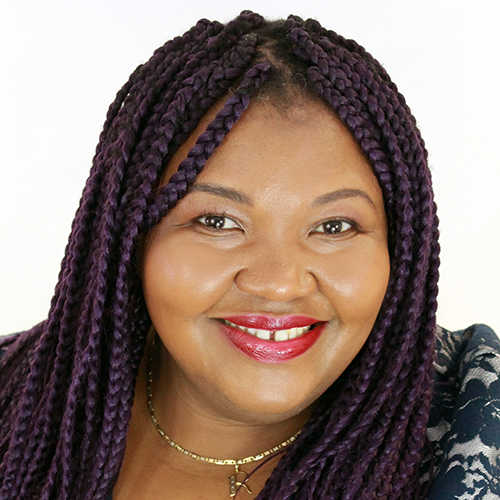
View Details / Enroll

Awakening the Parent: Are You Supporting or Sabotaging Your Client’s Transformation?

Dr. Britta Bushnell (she/her) is author of Transformed by Birth, host of the podcast Transformed, veteran childbirth educator, celebrated speaker, mythologist, wife and mother, and specialist in childbirth, relationship, and parenting. For over 20 years, Dr. Bushnell has worked with individuals and couples as they prepare for the life-changing experience of giving birth. Her work with parents has been enriched by her doctoral work in mythology and psychology, her years spent as a co-owner of Birthing From Within, as well as her dedicated study of solution-focused brief therapy, storytelling, and skills for supporting intimate relationships while parenting.
Britta is an engaging teacher, speaker, and presenter. Whether addressing a room of expectant parents, new mothers, or seasoned birth professionals, Britta has a way of captivating and inspiring them all. She has presented at conferences such as DONA International, MANA, ICEA, and Lamaze. Additionally, Britta has been featured on several popular podcasts including Informed Pregnancy, Birthful, and Atomic Moms. In 2016, in recognition of her transformative childbirth classes, Britta was awarded "Educator of the Year" by the Southern California Doula Association (DASC).
Topic: Awakening the Parent: Are You Supporting or Sabotaging Your Client’s Transformation? - [View Abstract]
Becoming a parent is a process of profound maturation, one that requires expectant parents to grow into decision-makers for their growing families. Teachers and experts in the childbirth and parenting fields naturally want to share their hard-earned wisdom with expectant parents. However, doing so without awareness may be unwittingly reinforcing the idea for new parents, that experts “out there” hold the knowledge needed to be make decisions in the best interest of their growing family. This effectively keeps expectant parents in the energetic position of the child (the one who receives guidance) rather than supporting them to grow into the position of the parent (the one who makes decisions and acts). If we want to help the expectant parents grow into autonomous and self-guided parents, educators must practice in such a way that inspires the growth needed in the parent rather than simply fill them with information. Flipping from the authority of teacher and expert to mentor or guide, reduces the hierarchical nature of the relationship and can help awaken the inner authority of the parent-to-be. Understanding this dynamic along with a few basic tools can help you better support your clients as they stretch into parenthood.
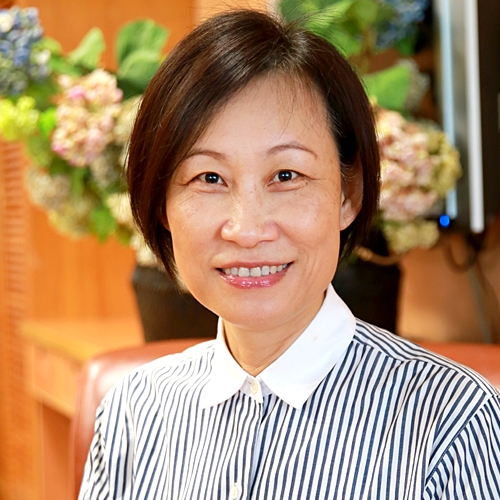
B Theory of Breastfeeding: Baby-Breast-Brain-Backup Axis (Mindfulness-Based Stress Reduction)

I am the mother of three breastfed children. Certified as an IBCLC in 2007, the next year, in 2008, setup the first IBCLC clinic in the medical center in Taiwan. As the President of the Chinese Lactation Consultant Association from 2015 till now. I have been teaching in the university for 30 years and as a part-time associate professor in the Department of Midwife & Women Health, National Taipei University of Nursing and Health Science, Taiwan now. After I retired from the university, I fund and as the CEO of WELL International Co., aims to promote the three-stages certification of profession lactation support competence.
Topic: Communications/Connection and Conflict Resolution Within the Extended Family - [View Abstract]
Breast is best. The World Health Organization recommends that exclusive breastfeeding for at least the first six months after birth. Breastfeeding 10 times a day and each lasts for 30 minutes for 180 days; that sum up to 54,000 minutes devoted for "healthy next generation". Wang (2008) propose the B theory of breastfeeding: Baby-Breast-Brain-BackUp axis, an interpretation and application of the lactation mechanism with a new perspective. Breastfeeding is involving physical, psychological and social aspects of life. How does the lactation consultant based on counseling skills, apply the Mindfulness-Based Stress Reduction (MBSR) to empower breastfeeding women, who can activate the positive brain feedback, prompt oxytocin reflexes, and bravely express individual needs. A breastfeeding friendly society therefore be fostered and the breastfeeding family could truly enjoy their breastfeeding goals & lives.

View Details / Enroll

Babies Cry to Communicate, Not to Manipulate... Non-Medical Reasons for Crying: An Anthropological Approach

Katrien Nauwelaerts graduated as a prehistoric archaeologist in 2005. She's the mother of three breastfed children and the administrator of the Dutch breastfeeding-website Borstvoeding Aardig, https://borstvoeding.aardig.be. Katrien worked as a volunteer breastfeeding-counsellor, provincial coordinator and training manager for the Belgian breastfeeding organisation Borstvoeding vzw between 2010-2014. Up tot 2018 she was the founder and president of Aardig Leven vzw, a non profit ecological organisation. In 2013 she became an IBCLC. Since 2013 she's working as a lactation consultant at her own private practice Borstvoeding Aardig. She became a nutritionist and a herborist in 2014. Katrien shares her experiences and knowledge on lactation consulting as a public speaker since 2014.
Topic: Breastfeeding and The Use Of Herbs - [View Abstract]
Topic: Young Mothers and Breastfeeding in Belgium - [View Abstract]
There is scientific research that says that breastfeeding duration shortens when parents experience their baby as a baby who cries a lot.
There are all kinds of medical reasons why a baby is crying. Crying is a way of communication for a baby. It's a cry for help.
But what if there are no obvious medical reasons for a baby's crying behavior?
This lecture explains sociological and anthropological factors that can influence crying behavior in babies.
Sometimes parents have false expectations about parenting and baby behavior. Sometimes cultural assumptions make parents believe they have a crying baby when they actually haven't. And some cultural or anthropological parameters can strengthen the crying behaviour in a baby. Learn more about normal newborn crying behaviour and how to help parents understand their newborn.
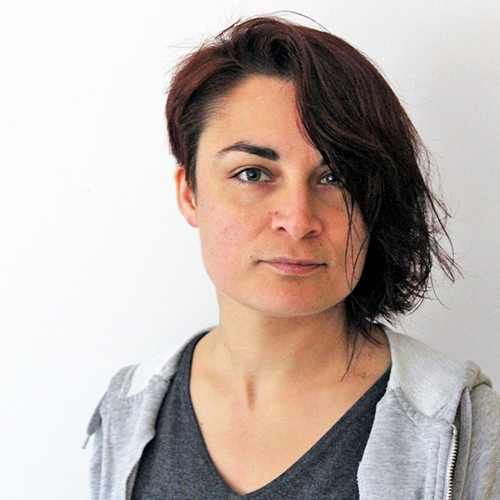
View Details / Enroll


Helen Ball trained in Human Biology and Biological Anthropology, obtaining her PhD at the University of Massachusetts, Amherst in 1992. She established the Parent-Infant Sleep Lab at Durham University in 2000, was promoted to Professor in 2007 and served as Head of the Anthropology Department 2013-2016.
Her research examines the sleep ecology of infants and their parents including attitudes and practices regarding infant sleep, behavioral and physiological monitoring of infants and their parents during sleep, infant sleep development, and the discordance between cultural sleep preferences and biological sleep needs. She conducts research in hospitals and the community and contributes to national and international policy and practice guidelines on infant care.
In 2016 she was appointed as Chair of the Scientific Committee for the Lullaby Trust, and in 2018 Durham University received the Queen’s Anniversary Prize for Further and Higher Education for Helen’s research and outreach work. She is a Board Member of ISPID (the International Society for the Study and Prevention of Infant Deaths) and directs the Durham Infancy & Sleep Centre (DISC) and Baby Sleep Information Source (Basis).
Topic: How do Digital Age parents cope with their infants at night? - [View Abstract]
Many assumptions exist about the origins and purpose of baby-boxes and their use as a safe infant sleep space; this misinformation needs correcting, especially as it relates to SIDS-reduction. Baby-box schemes take multiple forms from those motivated by social welfare to those motivated by commercial profit. Programmes offering carboard baby boxes to parents in England began in some NHS Trusts in 2016. We examined the pros and cons of English baby-box schemes via an independent evaluation conducted using telephone interviews and online surveys with healthcare providers and parents in all 7/9 NHS regions of England where baby-box schemes were established 2017-2019. The objectives were to produce recommendations for organisations considering involvement in future schemes. We found baby-box schemes changed over time, and were complex to run and monitor. Both parents and practitioners were misinformed about their purpose and origins. The English experience of partnership schemes between healthcare facilities and commercial box-providers reveals some success stories, along with multiple points of ambiguity, unanticipated difficulty, and concerns for infant safety. Sixteen recommendations are proposed for healthcare providers and organisations considering commercial - health-provider baby-box partnerships in future.
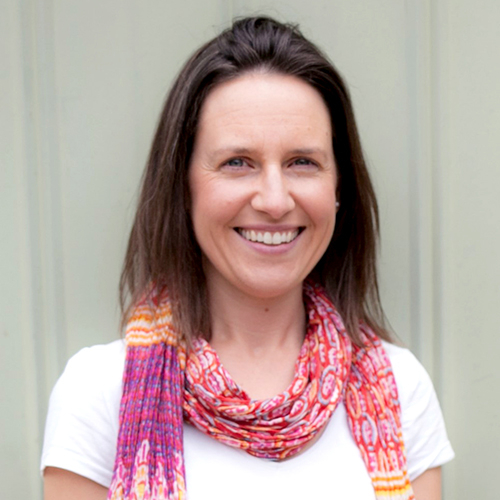
Back to Birth: The Power of Primitive Reflexes to Rebuild Brain Foundations

Nikki is mum to 3 wonderful boys, one with significant physical disability. Diving deep into the world of disability, child development and neurobiology due to her son's Cerebral Palsy, Nikki learnt to look beyond standard protocols when seeking interventions for her family to find additional knowledge and understanding that can be incorporated with traditional approaches to enhance and personalise therapy and care. This approach ultimately led Nikki to discover the power of primitive reflex integration.
Nikki deeply believes that life and circumstances, no matter how entrenched they seem, can always be improved. She thoroughly enjoys the opportunity to work with families and individuals to realise the individuality of each family member and discover the increased health, development and ease that's achievable.
Nikki began her journey with Rhythmic Movement Training (RMT) in Melbourne in 2013 and was astounded with the positive changes such an easy and small intervention could make. She has since worked with adults and children, using RMT, to integrate retained primitive reflexes and to ease their associated challenges. She particularly enjoys working with children and delights in seeing them actively participate in the sessions and very quickly own and take control of their sessions. The profound improvements and changes they see and feel in their bodies continues to amaze her.
Nikki balances her RMT work with days in the classroom as a relief teacher, relieving across the years from Reception to Year 12. Being in the classroom is always a fascinating and enjoyable time assisting students and watching reflexes at work. Nikki is also fascinated in the transformative power of epigenetics and is a co-developer of ph360's Parenting360 Course.
In her play time, Nikki loves surfing, reading, pilates and running to keep her body feeling alive and moving and to keep life feeling manageable!
The primitive reflex system provides the very first foundational layer of development in the brain. Without reflexive movement to trigger brain development, the brain would not develop at all. As this development progresses, the activity of primitive reflexes in the body diminishes to the point that primitive reflexes are considered “integrated.” However, what happens when this doesn’t happen as designed and primitive reflexes are instead retained? Growing amounts of research are identifying the links between reflex retention and a wide variety of motor, learning, cognitive, physical, emotional and postural challenges.
This presentation examines some of the main primitive reflexes and explores what happens when the primitive reflex process is interrupted.
How is it interrupted? How do these interruptions manifest? And, most importantly, what can be done therapeutically to continue and support the primitive reflex integration process.






